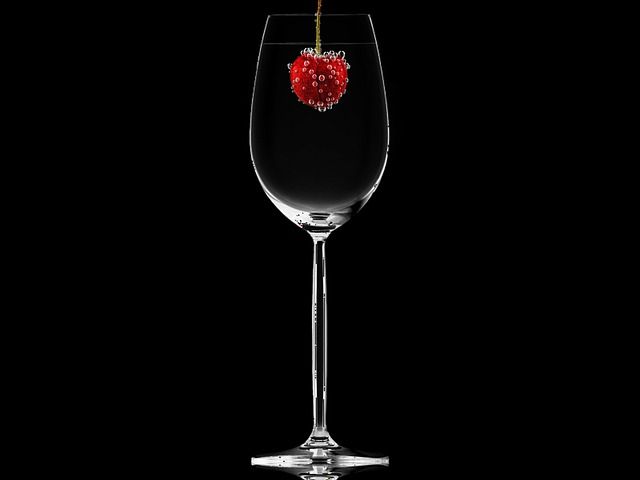What Happened To Gold Canyon Candle?
Gold Canyon candle was founded in 1992 by Curt Waisath in Phoenix, Arizona. Waisath started the company by selling candles out of the back of his station wagon before opening his first retail store. Gold Canyon quickly grew in popularity for its innovative layered candles that allowed multiple fragrances to be combined into one candle. The patented ceramic candles featured high-quality fragrances and beautiful designs, making them popular gifts and home decor items. By the late 1990s, Gold Canyon had expanded across the United States with a direct selling model powered by thousands of independent consultants. For over two decades, the company was known for its distinctive candles, fragrances, and charming canyon-themed branding.
Rise in Popularity
Gold Canyon Candles was founded in 1992 in Phoenix, Arizona by founders Curt and Karen Waisath. The company started off small, selling their signature scented candles at craft fairs and festivals.
In the late 90s, Gold Canyon began expanding nationally by utilizing the home party direct sales model. Sales consultants would host Gold Canyon “Candle Lighting Parties” where customers could experience the candles in their homes. This unique business approach allowed Gold Canyon to quickly gain a loyal customer base throughout the United States.
By the early 2000s, Gold Canyon Candles were being recognized as some of the best scented candles on the market. Their innovative and proprietary candle wax blends stood out from competitors, featuring more fragrant and better smelling candles. This drove their popularity and fueled expansion.
Key milestones during Gold Canyon’s rise include national expansion in the late 90s, the launch of their e-commerce website in 2000, continued growth of their consultant team, and the introduction of new product lines like body care and home décor. As popularity grew, so did their product offerings and retail distribution.
Business Model
Gold Canyon initially grew in popularity due to its unique direct sales business model. Rather than selling through traditional retail stores, the company relied on a network of independent consultants to host in-home ‘Candle Parties’ to demonstrate and sell the products.
The consultants purchased candle inventory directly from Gold Canyon at wholesale prices and then sold the products at retail prices during the parties, keeping the profit. This provided flexibility and a low barrier to entry for the consultants to run their own businesses and make commission.
Gold Canyon provided consultants with training, support, and incentives to build their sales teams. The more parties the consultants hosted and team members they recruited, the more commission they could earn. This model allowed the Gold Canyon candles to quickly reach a national network of customers through trusted peer selling rather than traditional advertising.
Recent Decline
Gold Canyon candle started experiencing a decline in business around 2017-2018. The company began closing its retail stores and saw a drop in its consultant sales force during this time. There were several factors that contributed to Gold Canyon’s downturn:
– Increased competition. The home fragrance industry became much more crowded with new brands entering the market. Established players like Yankee Candle posed stiff competition for Gold Canyon.
– Market saturation. Gold Canyon had reached a peak in consultant recruitment and retail expansion in the 2010s. By the late 2010s, the market was oversaturated and growth stalled.
– Operational issues. Gold Canyon faced some internal challenges with maintaining product quality and consultant retention. These operational struggles made it difficult to keep growing the business.
– Changing consumer preferences. Consumer tastes started shifting away from home fragrances, especially among younger demographics. This broad trend in the market hit Gold Canyon’s sales.
Between 2017-2019, Gold Canyon closed over 60 retail stores and saw its North American consultant force shrink by over 30%. The brand was clearly struggling to maintain its business.
Sale to SCJ
In 2019, Gold Canyon candle was acquired by SC Johnson (SCJ), the consumer products giant behind brands like Glade, Windex, and Ziploc. The acquisition brought an end to Gold Canyon’s era as an independent, family-owned company based out of Arizona.
Under the ownership of SCJ, some changes have come to the Gold Canyon business. While Gold Canyon still operates as a separate entity with its own manufacturing and distribution, its operations have been more closely integrated with SCJ’s processes. The product formulas and fragrances are now developed at SCJ’s headquarters in Wisconsin.
The sale has been somewhat controversial among Gold Canyon’s consultant network. Some consultants see it as a positive step to gain the resources and scale of a larger corporation. However, there are concerns that the small business feel and consultant support that defined Gold Canyon is fading under corporate leadership. The company culture and operations are becoming more corporate and less personalized.
Current Status
Gold Canyon continues operations today, albeit on a smaller scale than during its peak popularity. The company currently has around 200 retail stores, down significantly from over 1,000 locations in the early 2000s. Many of these stores are now located within craft stores like Michaels and Joann Fabrics rather than standalone locations.
In addition to retail stores, Gold Canyon products are primarily sold through its network of around 40,000 independent consultants who host in-home parties and sell online. This direct sales model has been a core part of the company’s business since the beginning. While the consultant force has declined from over 130,000, it still represents a sizable community.
So in summary, Gold Canyon has a smaller retail presence today focused within craft stores rather than standalone shops, and continues direct sales through a large consultant network, though reduced from its peak. The company appears to be rightsized to current demand levels versus overexpansion in the early 2000s.
Products Today
Despite the changes in ownership and operations, Gold Canyon continues to offer many of the same types of products that made the company famous. This includes their signature scented candles, home fragrance products, and accessories.
Gold Canyon’s core product line focuses on their pillar fragrances in candles and wax melts. These classic scents like Vanilla Cream, Angel Food Cake, and Cinnamon Cider are available year-round. Seasonal fragrances like Pumpkin Souffle and Peppermint Bark are also released on a regular schedule.
In addition to candles, Gold Canyon sells plug-in wax warmers, fragrance spheres, oils and reed diffusers for home scenting. Decorative candle holders and accessories are available to complement their candles. The company also offers some personal care items like hand creams and soaps.
While the packaging and brand imaging has evolved over time, the high-quality candles and home fragrances remain at the heart of the Gold Canyon product catalog today.
Marketing Approach
Gold Canyon focuses heavily on direct sales and multi-level marketing to promote its products. The company relies on a network of thousands of independent distributors who host in-home Gold Canyon candle parties. Distributors earn commissions on their sales, and also receive bonuses for recruiting new distributors. This direct selling model fueled rapid growth for Gold Canyon in the 1990s and 2000s.
In addition to its distributor network, Gold Canyon today uses social media and influencer marketing to reach new audiences. The company has active Facebook, Instagram, Pinterest, and YouTube accounts with a large following. Gold Canyon partners with lifestyle bloggers, YouTubers, and Instagram influencers to promote its products and spotlight creative ways to use them. These influencers often share discount codes or host giveaways to incentivize purchases. Gold Canyon also sends PR samples to influencers in exchange for reviews and social media posts.
Email marketing is another important promotional channel. The company uses email to announce new products, provide special offers, and share sales alerts with subscribers. Overall, Gold Canyon strives to engage consumers through diverse digital and social strategies, while still relying heavily on its direct sales model.
Customer Reviews
Gold Canyon candles receive overwhelmingly positive feedback from customers praising the candles’ high quality and alluring scents. Many reviewers highlight that the candles have excellent scent throw and longevity, filling rooms with fragrance for hours. Popular scents frequently mentioned include Lavender Vanilla, Pineapple Cilantro, and Black Raspberry Vanilla. Customers also remark on the wide variety of scents available from Gold Canyon, suitable for every taste and season.
In addition to the candles themselves, customers often compliment their experience purchasing from a Gold Canyon consultant. They describe consultants as extremely knowledgeable about the products, providing suggestions and samples to help customers find the perfect scents. The direct-sales model allows customers to have a personalized shopping experience. Reviews indicate customers appreciate establishing ongoing relationships with consultants who learn individual preferences.
Some negative reviews focus on high prices, particularly for the large jar candles. But most mentions of pricing say customers find the candles well worth the cost given their hand-poured quality and powerful scents. Overall, Gold Canyon earns stellar marks for delivering excellent products that delight the senses.
The Future
Expert opinions are mixed on whether Gold Canyon can recover and regain its former popularity and success. On one hand, the brand still retains devoted customers who love the candles and wax melts. The products themselves remain high-quality. With the right marketing approach, it’s possible Gold Canyon could make a comeback.
However, the direct sales model faces challenges in the age of social media marketing and ecommerce. Competing with the wealth of candle options available on sites like Etsy and Amazon will be an uphill battle. The company may need to transition to selling through retailers, rather than solely through consultants.
Most experts believe significant changes in marketing and sales strategies will be required for Gold Canyon to recover. While the brand retains strengths, the direct sales model has declined in recent years. Whether Gold Canyon can adapt and return to growth remains uncertain.
With proper investment and strategic pivots, Gold Canyon may regain market share. But the company faces real challenges in differentiating itself and rebooting sales. Ultimately, Gold Canyon will need to lean into its core strengths in product quality and brand loyalty if it hopes to succeed long-term.


